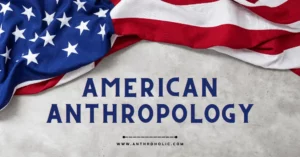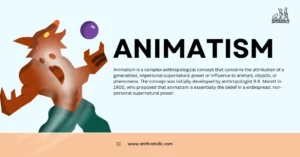AI Answer Evaluation Platform Live Now. Try Free Answer Evaluation Now
Edward Burnett Tylor
Edward Burnett Tylor didn’t conduct immersive fieldwork or live among Indigenous communities but he laid the intellectual foundations of modern anthropology.
Often called the “father of cultural anthropology,” Tylor helped transform the study of human societies from a speculative philosophy into a comparative science. Writing in the late 19th century, he introduced concepts such as “culture” as a system of learned behavior and “animism” as the root of religious thought. His work aimed to explain how human customs, beliefs, and institutions evolved from so-called “primitive” to “civilized” forms.

Tylor’s groundbreaking book Primitive Culture (1871) became a cornerstone of Victorian anthropology. It established the idea that all societies could be understood along a unilinear evolutionary path, progressing through identifiable stages of development. Although modern anthropology has moved beyond many of his assumptions, his definitions and methods continue to influence how we think about culture, belief, and historical change.
Early Life and Education
Edward Burnett Tylor was born on October 2, 1832, in Camberwell, London, into a wealthy and well-educated Quaker family. His upbringing emphasized liberal values, intellectual curiosity, and moral seriousness. Unlike many of his contemporaries, Tylor was not classically educated at Oxford or Cambridge. Instead, he entered his family’s business in metalwork but had to abandon it due to ill health.
In his mid-twenties, after being diagnosed with tuberculosis, Tylor traveled abroad for recovery-an experience that would profoundly shape his intellectual development. This trip, originally meant as a health retreat, became the starting point of his anthropological career.
Intellectual Influences and Travels
In 1856, during his travels in Mexico, Tylor met Henry Christy, a wealthy ethnologist and antiquarian. The two explored ancient ruins and studied local Indigenous cultures, an experience that gave Tylor firsthand exposure to non-European ways of life. Although he never returned to the field in a professional capacity, these early encounters with Aztec and contemporary Mexican communities inspired a lifelong interest in comparative culture.
The observations he made during these travels formed the basis of his first book, Anahuac: Or Mexico and the Mexicans, Ancient and Modern (1861). While not yet a fully anthropological work, the book demonstrated his interest in linking ancient and modern cultural forms and comparing them through an evolutionary lens.
Back in England, Tylor became part of a growing intellectual circle that included Darwinian evolutionists, ethnologists, and historians, all seeking to explain human progress and diversity. The theory of biological evolution provided him with a model to frame cultural development-not as random or fragmented, but as part of a systematic, universal process.
Foundations of Cultural Anthropology
Tylor’s major theoretical breakthrough came with the publication of Primitive Culture in 1871. In this landmark work, he proposed a now-classic definition of culture:
“Culture or civilization, taken in its broad, ethnographic sense, is that complex whole which includes knowledge, belief, art, morals, law, custom, and any other capabilities and habits acquired by man as a member of society.“
This definition remains foundational in anthropology today. By emphasizing that culture is learned, shared, and symbolic, Tylor helped shift anthropology away from racial theories of human difference and toward a more unified model of human development.
In Primitive Culture, Tylor also developed his theory of animism-the idea that the earliest form of religion was the belief in spiritual beings. He argued that religious belief evolved from animism to polytheism and eventually to monotheism, mirroring what he saw as a broader cultural evolution from primitive to civilized states.
Tylor’s commitment to “uniformitarianism” (the idea that the same psychological laws apply to all humans) supported his belief in a unilinear evolutionary path, where all societies move through similar stages of development at different rates. While this model has since been critiqued, it marked a significant step in creating anthropology as a scientific discipline focused on comparative human behavior.
Key Theories and Major Works
Tylor’s most influential work, Primitive Culture (1871), cemented his place as a foundational figure in anthropology. This two-volume study brought together diverse sources-travel accounts, folklore, religion, and material culture-into a grand theory of cultural evolution.
One of his major contributions was the concept of animism: the belief that natural objects and phenomena possess a spiritual essence. Tylor argued that this belief represented the earliest form of religion, which gradually evolved into more complex theological systems. This became the foundation of his evolutionary theory of religion, where religion progressed from animism to polytheism, then to monotheism, and eventually to rational secularism.
He also developed the theory of survivals, which described outdated cultural practices that persist in modern societies without their original meaning-such as superstitions or customary greetings. Tylor saw these as cultural fossils, remnants of earlier stages of human development, and useful tools for reconstructing cultural history.
In Anthropology: An Introduction to the Study of Man and Civilization (1881), Tylor produced one of the first comprehensive anthropology textbooks. It further formalized anthropology as a discipline in Britain and became a standard reference in both academic and public circles.
Though his work lacked ethnographic fieldwork, Tylor’s use of comparative methods and his commitment to general theory made him a pioneer in shaping anthropology as a scientific and systematic study of human culture.
Institutional Roles and Influence
Tylor played a key role in institutionalizing anthropology in Britain. In 1883, he was appointed Keeper of the Department of Ethnography at the British Museum, where he curated collections and helped elevate the museum as a center of anthropological research.
In 1884, he became Oxford University’s first Professor of Anthropology, making him the first official academic anthropologist in the United Kingdom. His lectures brought legitimacy to the field and trained a new generation of scholars, including figures like R.R. Marett and Andrew Lang.
Tylor was also active in scholarly societies, including the Royal Anthropological Institute and the British Association for the Advancement of Science, where he promoted the integration of anthropology into mainstream academic and scientific life.
His ideas were hugely influential among Victorian thinkers and policymakers. He shaped debates on race, civilization, and education, reinforcing the Eurocentric view of cultural evolution that dominated late 19th-century anthropology.
Later Years and Legacy
Tylor retired from his Oxford professorship in 1909 and was knighted in 1912 for his services to anthropology. He died on January 2, 1917, at the age of 84.
Today, Tylor is remembered as a founding father of cultural anthropology. His definition of culture remains one of the most quoted in the field, and his efforts to develop a scientific framework for the study of human society laid the groundwork for later anthropological theories.
However, his evolutionary model of cultural progress has been widely criticized for its Eurocentrism and unilinear thinking. Anthropologists now view cultural development as more complex, variable, and multidirectional than Tylor imagined. His assumption that European civilization represented the peak of progress is seen as a product of his colonial context.
Despite these critiques, Tylor’s legacy is secure. He helped define what anthropology would become: a discipline concerned with understanding the shared symbols, practices, and beliefs that shape human life across time and place.
Conclusion
Edward Burnett Tylor was not a fieldworker or a revolutionary in the modern anthropological sense, but he was a discipline builder, and his influence continues to echo through the foundations of cultural anthropology. In a time when the study of human society was largely speculative or theological, Tylor offered a systematic, comparative, and secular framework for understanding human culture.
His ideas-especially his famous definition of culture as a “complex whole” and his theory of animism as the origin of religion-shaped generations of thought. He helped establish anthropology as a distinct academic field, one that could explain cultural difference through historical and psychological processes rather than racial hierarchy or divine design.
Yet Tylor’s work was also a product of its time. His commitment to unilinear cultural evolution and belief in Western superiority have been rightly challenged by later scholars. His model, while influential, flattened the complexities of non-European societies and underestimated the diversity of cultural logics across the world.
Still, Tylor’s greatest contribution may be that he offered a unifying vision of humanity: that all people, regardless of race or geography, share the capacity for culture-and that cultural practices, no matter how strange they seem, follow patterns that can be understood through careful study.
In this sense, Tylor’s work remains both a milestone and a cautionary tale-marking the beginnings of anthropology as a science, and reminding us of the need to continually examine the lenses through which we view others.
References
- “Edward Burnett Tylor.” Encyclopædia Britannica. https://www.britannica.com/biography/Edward-Burnett-Tylor
- “Edward Burnett Tylor.” The Gifford Lectures. https://giffordlectures.org/speaker/edward-burnett-tylor/
- “Edward Burnett Tylor (1832–1917) Part 1.” University of Oxford. https://web.prm.ox.ac.uk/sma/index.php/articles/article-index/335-edward-burnett-tylor-1832-1917.html
- “Primitive Culture.” Cambridge University Press. https://www.cambridge.org/core/books/primitive-culture/30955C7CED270E1AF80CB7FEECF85010
- Tylor, Edward B. Primitive Culture: Researches into the Development of Mythology, Philosophy, Religion, Art, and Custom. https://www.gutenberg.org/ebooks/70458
- Tylor, Edward B. Anthropology: An Introduction to the Study of Man and Civilization. https://archive.org/details/anthropologyintr00tylouoft
- “Edward Burnett Tylor.” Royal Anthropological Institute. https://therai.org.uk/archives-and-manuscripts/obituaries/edward-burnett-tylor/
- “Edward Burnett Tylor.” Quakers in the World. https://www.quakersintheworld.org/quakers-in-action/391/Edward-Burnett-Tylor




